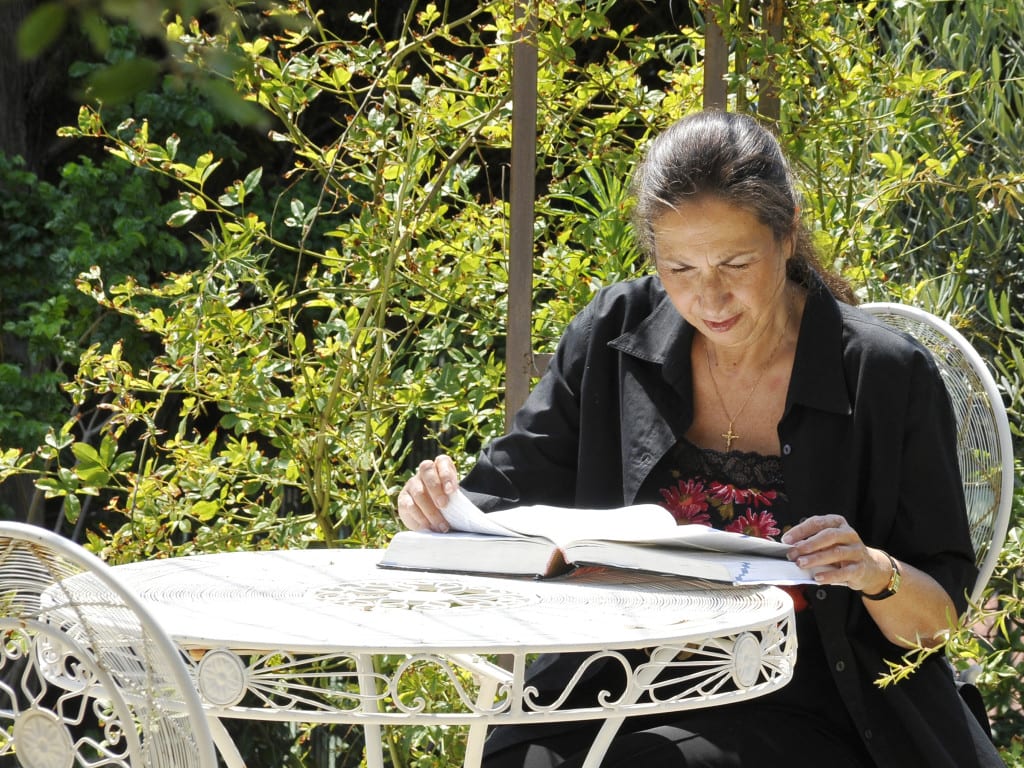The well-thumbed dictionary
The well-thumbed dictionary
The well-thumbed dictionary
-
Hannah
-
Hannah

On a mild summer’s day, once I have completed the writing tasks I set myself, I am usually to be found sitting in my garden near sweet-scented flowers, reading a book. Romance novels are, of course, firm favourites, and I spend much time reading background materials on the country in which my latest novel is set. But there is another, quite different, kind of book I immerse myself in often, a wonderful, weighty tome: the dictionary.
My interest in lexicography began in my teenage years. At first using a dictionary was a necessity for my studies: as I looked up new words in the classic French literature I was reading; as I sought the English term for the French word in my mind; and as I looked to increase my vocabulary to impress my peers through the romantic stories I wrote for them.
But once I was a young woman, and writing had transformed from hobby to serious passion, I found myself not only looking up the occasional word, but reading the entire page. The dictionary became a sort of treasure trove of knowledge for me, and I took to noting down words I found interesting and beautiful to the ear, to weave into my prose. I took to heart the wisdom of Nathaniel Hawthorne: ‘Words – so innocent and powerless as they are, as standing in a dictionary, how potent… they become in the hands of one who knows how to combine them.’
These days, my dictionary is delightfully well thumbed, and I would not be parted from it for a newer version. But given the rapid development of the English language, I try to keep abreast of new words not included in my own tome.
Each year the major dictionary compilers share a list of the new words that their lexicographers have officially included in the newest version. The lexicographers read widely, on the lookout for brand-new words entering the vernacular, and for words whose meaning has shifted. (‘Wicked’, for example, traditionally meant bad; then for a while it was slang for good; now it is back to being bad again!)
This year, Dictionary.com added more than a thousand new words, including:
- crash blossom: an ambiguously worded headline
- dox: to publish the private personal information of (another person) without the consent of that individual
- lifehack: a tip, trick, or efficient method for doing or managing a day-to-day activity
- ship: to take an interest in a romantic relationship between fictional characters or famous people
- slacktivism: actions taken to bring about political or social change but requiring only minimal commitment, effort, or risk
Am I about to dox an individual, include a crash blossom, offer a lifehack or weave some slacktivism into my latest novel? I think not! Knowing words does not mean one must use them. But ‘ship’ is interesting. I certainly ship Alexandra and Salvador in Indiscretion…
